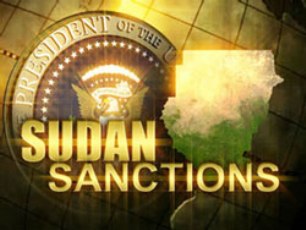Sudan’s NCP dismisses claims about possible U.S. retreat from lift of sanctions
January 16, 2017 (KHARTOUM) – Sudan’s ruling National Congress Party (NCP) has called on the Sudanese to not listen to the opposition forces’ “nonsense” remarks about a possible retreat by the incoming U.S. Administration from the recent decision to ease economic sanctions imposed on Sudan.

NCP Political Secretary Hamid Mumtaz on Sunday has urged the opposition parties and armed movements to get rid of the “illusions and dreams” about a possible retreat by the incoming Trump Administration from the decision to lift sanctions imposed on Sudan.
“U.S. policies and decisions are not usually taken on emotional or public relations bases,” he said.
Opposition forces have downplayed the impact of the lift of economic sanctions. The leader of the opposition National Umma Party (NUP) al-Sadiq al-Mahdi said the U.S. decision on Sudan sanctions was made on false bases.
Besides underscoring that the decision ignored the issue of peace and democratic reforms, they point that a review will be held by the American administration within six months and it may reinstate the sanctions on the Sudan.
Mumtaz, who was speaking at a political symposium in Khartoum, described Washington’s decision as “victory for the Sudanese political will”, saying the coming period requires the continuation of efforts to achieve peace and stability.
He renewed his party’s call for the external opposition to engage in the national dialogue process, saying those who reject the will of the people would be defeated.
Since January 2014, Sudan’s President Omer al-Bashir has been leading a national dialogue process whose stated aims are to resolve the armed conflicts, achieve political freedoms, alleviate poverty and the economic crisis, and address the national identity crisis.
Last October, the political forces participating at the national dialogue concluded the process by signing the National Document which includes the general features of a future constitution to be finalized by transitional institutions.
The opposition groups boycotted the process because the government didn’t agree on humanitarian truce with the armed groups and due to its refusal to implement a number of confidence building measures.
(ST)
